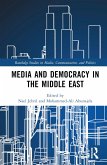Social media and social networking services are integrated into the American political process and have profoundly influenced political communication and participation. Social media platforms have transformed the political landscape by revolutionizing information dissemination, citizen engagement, and public opinion formation and change. Politicians use social media to communicate directly with voters in an unmediated and unfiltered manner. Comparatively, voters use social media to follow the latest messaging from politicians accompanied by demonstrating their support for particular politicians.
This book is a comprehensive examination of the role of digital and social media in the 2020 U.S. presidential election. Political discourse during the 2020 election revealed political disharmony and a deep political division among vast swaths of Americans that was powered, in part, by social media. This book reveals how digital and social media have reshaped power dynamics byaltering the relationships among citizens, politicians, and traditional media outlets, the emergence of new influencers, and the impact of online activism on policy agendas.
This book, Social Media Politics, includes scholars with varied backgrounds and experience, using both quantitative and qualitative methodologies, from leading research institutions around the nation. Students, scholars, and practitioners will gain new knowledge to more clearly understand the role social media played in the 2020 presidential campaign.
This book is a comprehensive examination of the role of digital and social media in the 2020 U.S. presidential election. Political discourse during the 2020 election revealed political disharmony and a deep political division among vast swaths of Americans that was powered, in part, by social media. This book reveals how digital and social media have reshaped power dynamics byaltering the relationships among citizens, politicians, and traditional media outlets, the emergence of new influencers, and the impact of online activism on policy agendas.
This book, Social Media Politics, includes scholars with varied backgrounds and experience, using both quantitative and qualitative methodologies, from leading research institutions around the nation. Students, scholars, and practitioners will gain new knowledge to more clearly understand the role social media played in the 2020 presidential campaign.
"Pernicious levels of political disharmony, partisan divides, and uncivil discourse, occurring in an information environment dominated by social media, combined to create a perfect storm in the 2020 presidential election, the aftermath of which is still being felt today. Bringing together a mix of established and emerging scholars, Social Media Politics provides insightful new ways to make sense - both theoretically and practically - of the role of communication in contemporary politics. Highly recommended to students, scholars, journalists, and practitioners."
Michael X. Delli Carpini, Oscar H. Gandy Emeritus Professor of Communication and Democracy, Annenberg School for Communication, University of Pennsylvania
"No one doubts that social and digital media are contributing mightily to the vicious polarization in our politics. Waves of disinformation originate on Facebook, Twitter, and all the rest-and feed dangerous attacks on democracy, as we saw on January 6, 2021 with the insurrection at the U.S. Capitol. Effective solutions aren't easy to find, but Professors Dan Schill and John Allen Hendricks, and their distinguished group of contributors, dig deep and show us how devilish the problem is. This book will leave every reader with a much better sense of what our political system is facing."
Larry J. Sabato, Director of the University of Virginia Center for Politics
Michael X. Delli Carpini, Oscar H. Gandy Emeritus Professor of Communication and Democracy, Annenberg School for Communication, University of Pennsylvania
"No one doubts that social and digital media are contributing mightily to the vicious polarization in our politics. Waves of disinformation originate on Facebook, Twitter, and all the rest-and feed dangerous attacks on democracy, as we saw on January 6, 2021 with the insurrection at the U.S. Capitol. Effective solutions aren't easy to find, but Professors Dan Schill and John Allen Hendricks, and their distinguished group of contributors, dig deep and show us how devilish the problem is. This book will leave every reader with a much better sense of what our political system is facing."
Larry J. Sabato, Director of the University of Virginia Center for Politics









